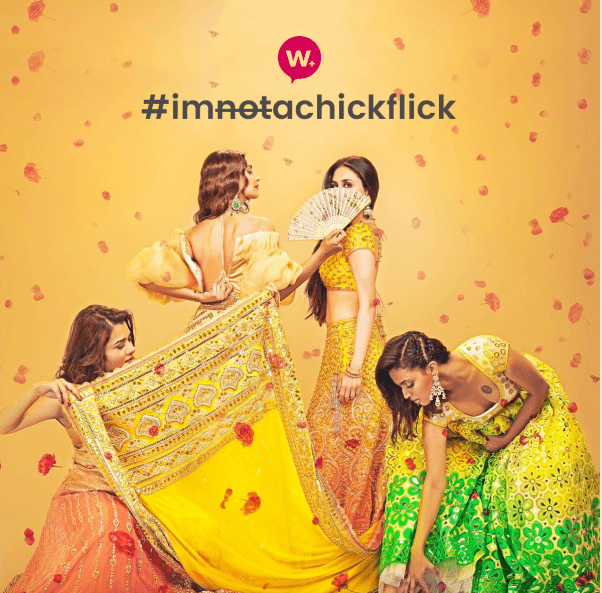When Veere di Wedding was announced, I was glad but apprehensive. It promised to be a one-of-a-kind film, with all female cast as the lead- something mainstream Bollywood hadn’t tried before.
Finally we have a film meant for women – one that is about women, who are not problematic, and are real and relatable.
Yes, it does have a few flaws– the ages of the characters and timeline don’t match up, and despite of having all female leads, it doesn’t pass the bechdel test, marriage and boys is all they talk about, and it reeks of privilege.
But what I like about it? It has four female leads that aren’t catty or bitchy. The first one of them is Kalindi played by Kareena Kapoor Khan. Her character has never believed in the institution of marriage, as she thinks it is highly flawed. Move over the stereotype that only men have commitment issues, females do have them too. Some of us are just afraid to talk about it.
Sonam Kapoor plays Avni who is a lawyer but is never shown working. She, like most of us is conditioned to believe that we all need to find is a partner in life and get married to them, even if we don’t actually want one – and that seems to be okay.
Swara Bhaskar a.k.a Sakshi is a character which is just getting out of a marriage but doesn’t speak about it because of the stigma attached to being a divorcee in our society.
My favourite out of the lot, Meera played by Shikha Talsania is estranged from her family, who does not accept the fact that she married a non-Indian. Her character gracefully shows the after effects of having a child.
The first half of the film is all fun and glamour. The reason being, there are some genuine observations about age, freedom and reconciliation that may resonate with the urban audience. Both Bhasker and Talsania shine in a couple of moments but they are so few and far in between. As an ensemble piece, with multiple sub-plots coming home to the same conclusion, the film feels terribly cluttered and unsatisfying. The second half zips past multiple conflicts and rushes to the dancing. But despite of everything, you will leave the theatre with a smile on our face.
The film is definitely going to ruffle some feathers for some conservative audience.
And what’s more? The female leads curse, drink, smoke, party – and not that smoking and drinking is a practice that needs any encouragement but in real life, in real world – there are girls and women who drink, smoke, party and chill with their female buddies and are more than arm-candies to the “hero” and it was high time that this was presented to be “normal” rather than being labeled in anyway.
The film is far from being the perfect film, but it is definitely a step closer to being good mainstream Bollywood cinema representing female bonding and their issues – which is a big step.







,